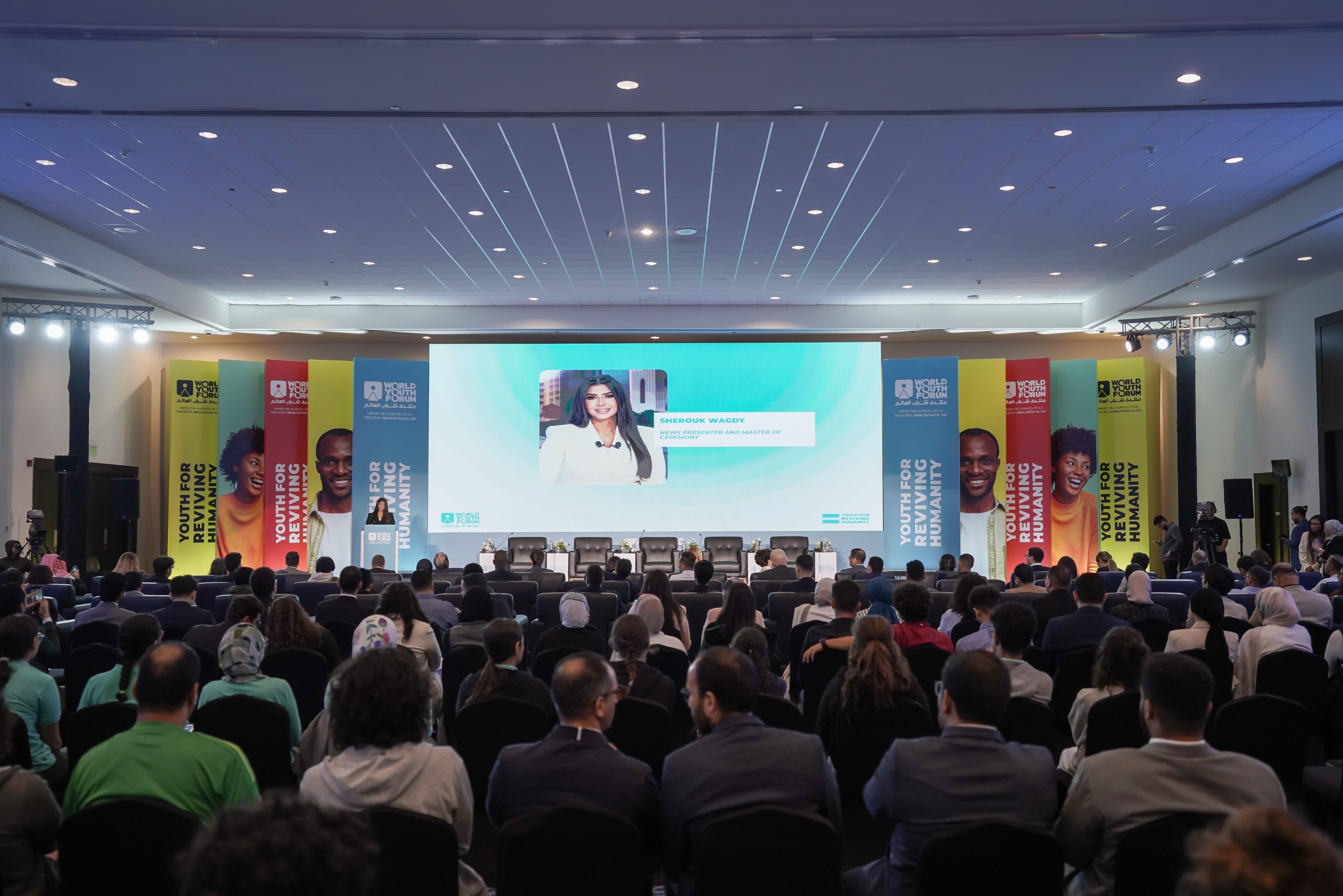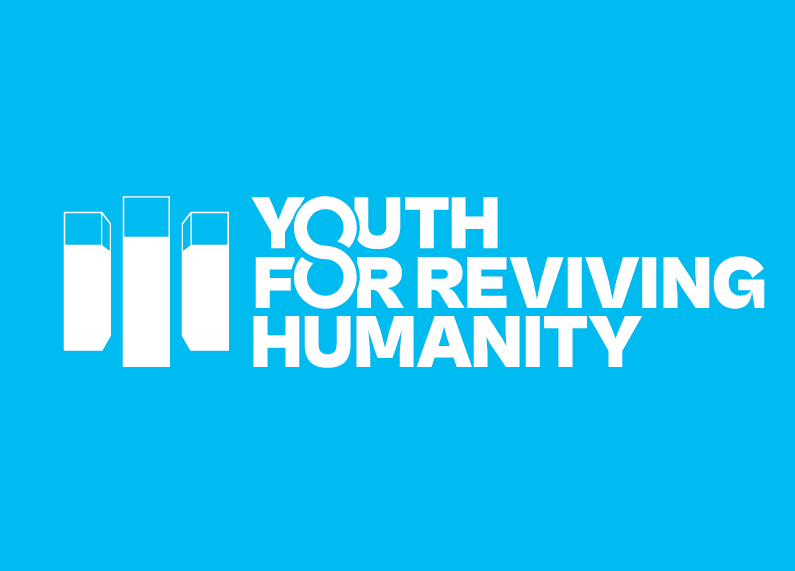Share

The activities of the fourth edition of the World Youth Forum were launched under the auspices of President Abdel Fattah El-Sisi, and in the presence of a selection of world leaders and influential prominent personalities, during the period from January 10 to 13, 2022 in Sharm El Sheikh, South Sinai, amid strict precautionary measures to prevent the spread of the Coronavirus.
The first session of the second day of the forum were held under the title “From Glasgow to Sharm El Sheikh to Combat Climate Change,” which discussed the Glasgow Climate Charter and reviewed its strengths and weaknesses from the perspective of African countries, in addition to the most prominent current and future environmental and climate risks and their impact on the countries of the African continent and the Mediterranean Region.
The session began with the screening of a short documentary film entitled “Mother Earth”, which showcased the suffering of the globe and the unprecedented changes and climatic phenomena it is witnessing as a result of the industrial revolution and the increasing neglect of the environment. The film concluded with a call to save the earth through the necessity of charting a new path to the future that would be safer for future generations.
The documentary film was followed by a speech by Dr. Mostafa Madbouly, Prime Minister of the Egyptian Republic, in which he reviewed the Egyptian experience in confronting the climate change file at the Global Climate Summit “Cop26” that was held in Glasgow in 2021, and the mechanisms for implementing and following up on the outcomes of this summit within the conference to be held In the city of Sharm el-Sheikh during the current year.
Madbouly explained that climate change has become a ruling issue that must be confronted firmly, as the global economic losses caused by climate change amounted to about $3.6 trillion until 2019, and it is estimated that they will reach from $280 to $500 billion by 2050, stressing that developing countries were not the cause of these changes, but had to pay the costs of these effects along with the developed countries, which were actually the main reason behind these changes.
The Prime Minister then reviewed the Egyptian experience in facing these climate changes, and the most important steps that have been implemented, including the formation of the National Council for Climate Change and the launch of national projects aimed at adaptation, most notably desalination and water treatment, lining of canals, and the “Decent Life” project. He stated that Egypt is one of the countries most vulnerable to negative impact due to climate change, while it is the least affected country, as its contributions to global emissions do not exceed 0.6%, but on the other hand, it has huge potentials in the field of renewable energy.
He stressed that the priority topics to be discussed at the upcoming Cop27 summit in Sharm El Sheikh are emissions reduction, adaptation, financing, and global assessment and recommended empowering youth to have a more active role in facing climate changes and encouraging them to present innovative solutions and ideas to be adopted by the Egyptian state to achieve adaptation and transition to a green economy. The Prime Minister concluded his speech with a quote from Margaret Mead: “There is no doubt that a small group of thoughtful and committed citizens can change the world. It is absolutely the only way to do so.”
During the new interactive platform of the World Youth Forum, John Kerry, the United States Presidential Envoy for Climate Affairs, expressed his happiness to participate in the World Youth Forum, adding that we have about 8 years to come during which we must make sound decisions to avoid many of the dire consequences resulting from the climate crisis, stressing on the need for countries and governments to commit to achieving this transformation, and that they will need to invest trillions of dollars, proper regulations, transparency, and sound databases to help achieve the desired goals.
Kerry concluded by saying that he looks forward to working with President Abdel Fattah El-Sisi, the Egyptian leadership and all those present at the upcoming COP27 summit in Sharm El-Sheikh 2022, and that we must work together to win this battle and have the ability to create the future.
During his participation, Ambassador Mohamed Nasr, Director of the Environment and Sustainable Development Department at the Ministry of Foreign Affairs and advisor to the African Group of Commissioners, stressed that the climate change negotiations are no longer technical negotiations, but have become political negotiations with a technical dimension as well as developmental, not only environmental.
He added that there are three main challenges related to financing issues; The gap between the needs of developing countries and the available funding, as the realistic needs for climate finance amount to $5.3 trillion by 2030, while the funding available does not exceed $600 billion, in addition to the inconsistency of the available funding tools with the needs and conditions of developing countries, and finally the executive procedures for financing, as there are conditions and requirements by financial institutions that are difficult to achieve for developing countries.
From her end, Inger Andersen, Under-Secretary-General and Executive Director of the United Nations Environment Program (UNEP), stressed that the Glasgow Climate Summit took steps to pave the way for bold decisions to reach a sustainable environment, as these decisions must be discussed, their activation and how to implement them during the upcoming COP 27 summit in Sharm Sheikh 2022.
In her remote intervention, the Under-Secretary-General and Executive Director of the United Nations Environment Program added that strong commitments must occur in all countries, as we came a long way at the Glasgow Summit, but we still have a long way to adapt to these changes, and it is assumed that in Cop27, everyone will have a state that has its responsibilities and presented them on the discussion table in order to know the steps it has taken and its promises and commitments, whether they have been achieved or are there still issues on its agenda.
Andersen concluded her speech by praising Egypt’s achievements and its remarkable leadership in the climate change file, and that it will lead the next summit to gather young people, where we can change the world and build the future.
Bill Weir, an American CNN correspondent, shared his experience with the audience, and explained that during his visit to Iceland, he noticed climatic changes such as fires, hurricanes and melting ice in the Arctic, in addition to his visits to various parts of the world through which he noticed many natural disasters caused by climate change which has led to the occurrence of a large number of deaths. He concluded his intervention by saying that there is still a long way to go, recommending that we have the ability to adapt to these changes, but we know the expected challenges and stand on the current situation, and that there is an urgent need for actual positive measures and changes through the work of important alliances between countries.
Yolande Wright, Child Poverty, Climate and Urban Communications Director at Save the Children International, said climate change is having a major impact on international migration and that we need to think about policies and reflect the commitments made in Glasgow and make sure they are made at the upcoming COP27 global summit, as well as we need to find more green and innovative solutions to avoid the causes of climate change and confront this crisis.
While Aqil Hajjaj, Director and Senior Consultant at C12 Consultant, presented the experience of the role of the private sector in Malawi in facing many challenges, including the growing population and climate change, and he praised Egypt’s projects to confront climate change, and stressed that the private sector is moving quickly in that field.
Karim Hisham, founder and CEO of Hua Dua, also reviewed his project in applying artificial intelligence to measure environmental pollution and find hot spots to develop short and long-term solutions to contribute to facing climate change, and stressed that the compatibility between policies and technology increases the ability of startups to help governments in facing the effects of climate change.
Marco Schlitz, a consultant to the Open Earth Foundation, explained that the poor availability and accuracy of climate-related data provided by countries does not help in the development of ways and speed to confront climate change and the development of the ecosystem, and he cited in this the movie “Don’t Look Up”, in which the availability of accurate data helped in predicting the end of life on Earth.
During the session, President Abdel-Fattah El-Sisi, President of the Republic, thanked and welcomed the speakers for the ideas they presented during the session, noting that he intends to speak in a different manner on this occasion, as man is the only creature on earth capable of reform as much as he is capable of destruction, stemming from the sense of danger expressed by previous speakers. His Excellency added that man is capable of reconstruction, and he also stressed the ability of world leaders to confront the dangers of climate change in the coming years.
The President pointed out the danger stemming from the expected increase in the number of cars in the coming years, and that the solution lies in replacing cars that run on fossil fuels with other cars that run on electricity or natural gas. This is what Egypt has already done, as it launched an initiative five years ago to replace these cars, so that Egypt will reach the first locally-made car in 2023 that runs on electricity, and although its cost will be somewhat prohibitive, the opportunity remains for the private sector to take advantage of that opportunity. Contribute to actions that reduce the impact of climate change.
The President continued his speech, referring to the issue of lakes that are undergoing a complete process of development and purification as a contribution from the Egyptian state to transform these lakes into economic energy. Then His Excellency moved to the “Decent Life” initiative, adding that the Egyptian state has allocated more than 80 billion Egyptian pounds to lining and rehabilitate canals, at the same time the state is moving to follow up on iron and cement factories and projects in order to reduce the volume of emissions, as well as developing the road and bridge network to provide opportunities the work.
The session concluded with a comment from President Abdel-Fattah El-Sisi, on the aforementioned during the session, saying: “I thank all the participants for their support for Egypt in holding the upcoming World Climate Summit “COP27” in Sharm El-Sheikh 2022.
It is worth noting that the documentary film “Mother Earth” that was shown during the session was prepared by the artistic production team of the Organizing Committee of the World Youth Forum, where a volunteer, Dr. Mervat Abu Auf, participated in the voiceover.
Watch the movie “Mother Earth” via the following link: https://www.youtube.com/watch?v=542KFaif13Y
STAY IN THE LOOP





